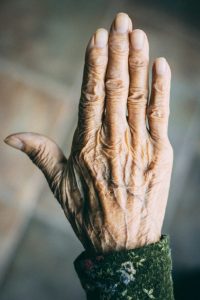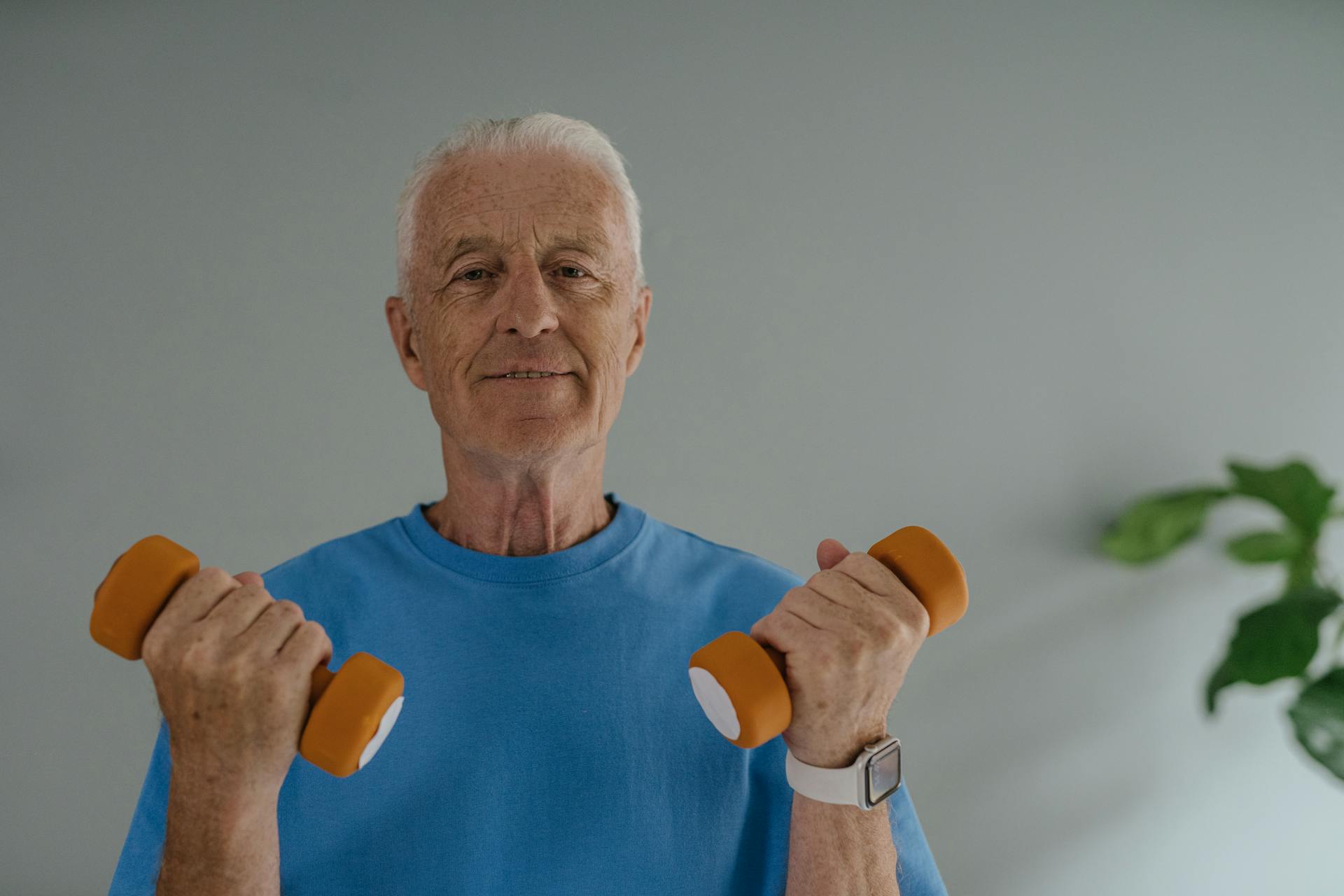Young adulthood is comprised of people 19-40 years of age, middle adulthood is 40-65 years of age, and late adulthood, or mature adults, are 65+ years of age. According to 2022 statistics, those sixty-five and older are the fastest-growing age group (17.3%) in America, comprising 57.8 million people, which is a 34% increase since 2012.
The population under sixty-five increased by only 2% in the same period. This increase is attributed mainly to the baby boomer generation (born between 1946 and 1964), who began turning sixty-five in 2011. America is aging.
Aging is a part of God’s plan. As stated in Scripture, “People are like grass; their beauty is like a flower in the field. The grass withers and the flower fades.” 1 Peter 1:24 (NLT) As we age, changes occur physically, emotionally/socially, and cognitively, and while some aspects cannot be controlled, many may be made easier or eliminated by being proactive.
 Aging is a unique process, and various factors contribute to aging, including genetics, lifestyle, stress, and attitude. Many people do not give thought to aging when they are in their twenties, thirties, or even forties. Often, we wait until these changes begin before we consider developing healthy habits. Adjusting our lifestyle is an individual’s responsibility – no one can do it for us.
Aging is a unique process, and various factors contribute to aging, including genetics, lifestyle, stress, and attitude. Many people do not give thought to aging when they are in their twenties, thirties, or even forties. Often, we wait until these changes begin before we consider developing healthy habits. Adjusting our lifestyle is an individual’s responsibility – no one can do it for us.
Understanding and recognizing the changes associated with aging can help you prepare to reduce your risk of disease and disability by developing healthy habits today. Areas to develop healthy habits earlier in life include physical, emotional/social, and cognitive. First, you must understand the changes that occur in each of these areas as you age.
Physical
- The brain shrinks
- Slower motor behavior which begins in middle adulthood, ages 40-60. Includes decreased muscle strength, flexibility, coordination, and balance.
- Poor sleeping, which contributes to falls and lower cognitive functioning.
- Declines in immunity
- Hearing loss
- Age spots, wrinkles, reduction in height, and weight decreases due to loss of muscle
- Vision declines (periphery, cataracts, glaucoma, macular degeneration)
- Touch sensitivity lessens
- Increased cardiovascular disease
- Decreased lung capacity
- Change in sexual performance
- Chronic illnesses are more common
- Accidents are more debilitating
- Drug abuse is higher than in younger adults.
Emotional/Social
- Goals and priorities change with aging. They become more meaningful, emotional, and realistic
- Older adults recall the past more positively than younger adults.
- More passivity and desire for social harmony
- More concerns about health
- Social support is essential, and older adults are more selective about social circles
- More contemplative about life
- Self-esteem declines due to health issues, loss, and being institutionalized
Cognitively
- Cognitive skills peak in the twenties, then begin to decline, becoming most noticeable in the sixties and beyond.
- Speed of processing information declines
- Less able to tune out distractions
- Delines in memory
Various changes occur as we age, and what will happen and how it presents itself is contingent on many factors, such as lifestyle, genetics, and stress. While some aspects are out of your control, you can control some factors by making wise choices when you are younger. Rely on the Lord for strength and discernment, strength to make wise choices, and discernment to guide you. “For I can do everything through Christ, who gives me strength.” Phil 4:13 (NLT)
The following are ideas to aid you in healthy aging.
Preparing Physically
“Don’t you know that your body is a sanctuary of the Holy Spirit who is in you, whom you have from God? You are not your own, for you were bought at a price. Therefore, glorify God in your body.” 1 Cor 6:19-20 (HCSB) We should be good stewards of our bodies. Taking care of what God created.
Maintain a balanced diet Find what works for you, as there are many options and ideas as to what constitutes a healthy diet. Educate yourself about food and its impact on your body. Remember, moderation is key.
 Exercise Get moving by engaging in regular exercise, such as walking, swimming, or gym workouts. There are many resources available online via apps or websites, or at your local gym. If you need accountability, encouragement, or guidance, finding a personal trainer (online or in person) would be beneficial.
Exercise Get moving by engaging in regular exercise, such as walking, swimming, or gym workouts. There are many resources available online via apps or websites, or at your local gym. If you need accountability, encouragement, or guidance, finding a personal trainer (online or in person) would be beneficial.
Manage your stress by identifying stressful situations or people. Learning coping skills such as exercise, listening to music, prayer/reflection, and establishing healthy boundaries by eliminating or limiting relationships that are toxic are ways to reduce your stress.
We live in an era of packed schedules and over-commitment. Learn to unplug from the day-to-day grind and prioritize your schedule by saying no to some engagements. Find opportunities for quiet time to be still with the Lord. Take time to recharge, whether it be stolen time during the day, an afternoon to pamper yourself, or a weekend away.
When we allow our tank to run dry through all the demands or stress of this world, we are less effective in our endeavors. Also, stretching yourself to the limit and ignoring or “pushing through” your stress can lead to physical issues, from ulcers to heart conditions, which may not manifest until you are older.
Go to regular health checkups, as early detection of disease or conditions is paramount. One never wants to hear, “If only we had found it sooner, the outcome would be different.” Being proactive with your health and preventative checks could mean the difference between aging well and aging with difficulty.
At the same time, not all ailments can be detected early. This world is fallen and broken, and some things happen despite your preparation. However, you are to be responsible for being a good steward of your body. “Don’t you know that you are God’s sanctuary and that the Spirit of God lives in you?” 1 Cor 3:15 (HCSB). To honor God and how He created you, you should not abuse your body but care for it by making wise and healthy choices.
Preparing Emotionally/Socially
 It is easy to find ourselves caught in the moment, thinking that we have plenty of time, but time passes quickly; our time here on earth is finite. Choices made when you are younger can influence your future positively or negatively. The choices you make regarding learning, financial literacy, mental health, and relationships all contribute to a healthy aging process.
It is easy to find ourselves caught in the moment, thinking that we have plenty of time, but time passes quickly; our time here on earth is finite. Choices made when you are younger can influence your future positively or negatively. The choices you make regarding learning, financial literacy, mental health, and relationships all contribute to a healthy aging process.
Learning and growing are essential not only for healthy aging but also for a fulfilling life. “The beginning of wisdom is this: Get wisdom, and whatever you get, get insight.” Prov 4:7 (ESV) The word learn is often equated to school and education, but learning is much more than that.
Obtaining an education is essential in the world we live in, and there are many avenues available, including college degrees, technical or trade schools, or on-the-job training. Finding an area that interests you or that uses the gifts God has given you. When you learn, you grow in knowledge and wisdom. Growth occurs not only professionally but also emotionally and socially. Grow in understanding yourself and others.
Develop financial literacy. Think ahead to what you want your senior years to look like? When do you want to retire? How much money needs to be saved to maintain your lifestyle? Numerous resources are available to help you make informed financial decisions for your future. Disciplining yourself to contribute to savings or retirement, choosing to tithe, and finding a financial advisor or planner are steps that can aid you in financial security as you age.
Maintain mental health and be honest and open about challenges in your life, whether in the present or issues you carry from your past. Your past traumas and struggles do not define you, but shape you, adding to your story. Those things from your past affect how you approach life, interact with others, and make decisions.
Being aware of how to manage stress and anxiety through learning coping skills and gaining an understanding of life’s challenges is essential. Leaning into the Lord for strength and discernment to equip you. “For I can do everything through Christ, who gives me strength.” Phil 4:13 (NLT) Working through those issues can help you age well.
Engaging with family, friends, or the community contributes to increased mental well-being and belonging. We are called to a relationship with others and the Lord. God desires to be in relationship with us and calls us to be in community with others.
Let us think of ways to motivate one another to acts of love and good works. And let us not neglect our meeting together, as some people do, but encourage one another, especially now that the day of his return is drawing near. – Hebrews 10:24-25, NLT
We are to be in community with fellow believers to provide encouragement and support, which may be achieved through attending church, Bible study, or a home group.
Preparing Cognitively
 Stimulating and exercising your brain is crucial for preparing for the aging process. It is a true statement that if you don’t use it, you lose it. Engage in mentally stimulating activities such as reading, puzzles, and learning new skills. Additionally, participating in social interactions not only helps us emotionally but also cognitively. Social support and engagement are correlated with high levels of cognitive functioning.
Stimulating and exercising your brain is crucial for preparing for the aging process. It is a true statement that if you don’t use it, you lose it. Engage in mentally stimulating activities such as reading, puzzles, and learning new skills. Additionally, participating in social interactions not only helps us emotionally but also cognitively. Social support and engagement are correlated with high levels of cognitive functioning.
Spiritual growth provides purpose, meaning, and resilience. Through prayer and worship, you can connect with God. Leaning into Him for guidance. Trusting in Him for the plan He has for you. Knowing that he loves you will help you not to feel alone when life brings loss and challenges.
Next Steps
It states in the Scriptures that older people have much to offer when they are rooted in God. “Even in old age they will still produce fruit; they will remain vital and green.” Psalm 92:14 (NLT) To age well, it is beneficial to be proactive to prepare physically, emotionally/socially, and cognitively when you are younger to help you navigate the later seasons of life.
While this may seem a weighty endeavor, you do not need to do it alone. Find a dietitian or coach to help you with your physical needs, connect with a church community to support your social life, and reach out to a Christian counselor for emotional assistance.
Photos:
“Old Eye”, Courtesy of alpay tonga, Unsplash.com, CC0 License; “Woman with a Cane”, Courtesy of Natalia Trofimova, Unsplash.com, CC0 License; “Old Hand”, Courtesy of Geronimo Giqueaux, Unsplash.com, CC0 License; “Bearded Old Man”, Courtesy of Tim Mossholder, Unsplash.com, CC0 License





